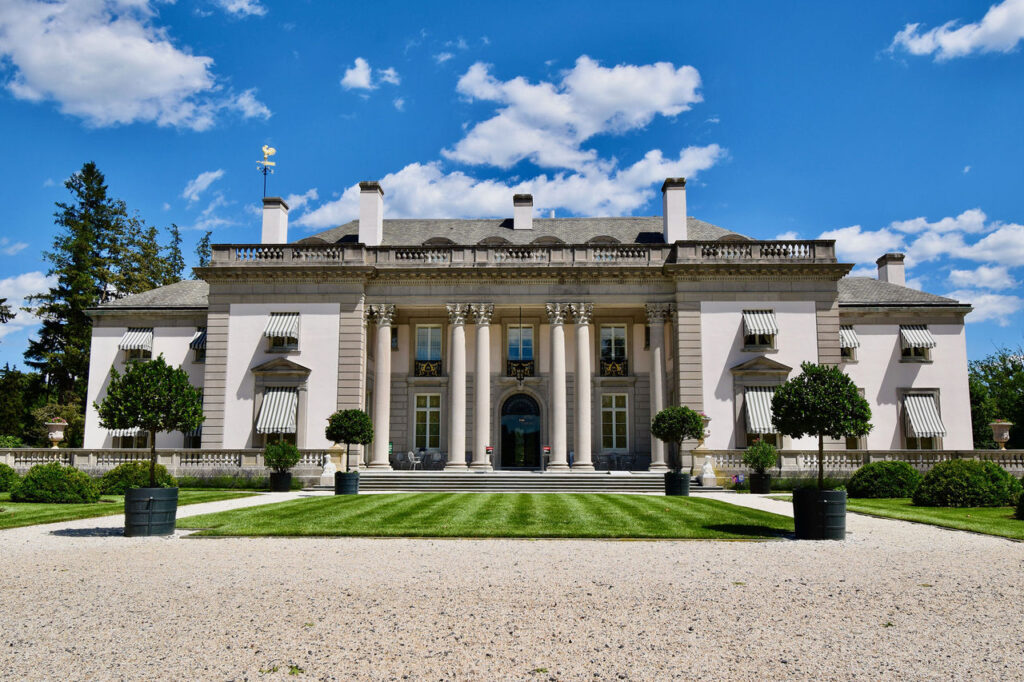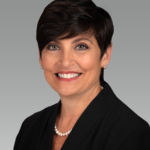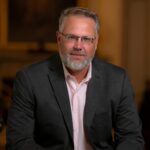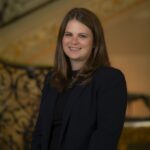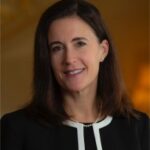All across Nemours Children’s Health, from Wilmington to Pensacola to Orlando to Jacksonville, and points in between – the ethos of Well Beyond Medicine is becoming well established. That includes the Nemours Estate in Wilmington, the only public park in the nation with a hospital on its grounds. Guests Gina Altieri, Jean Hershner, Ken Darsney, and Annie Thomas-Bubel join us in this bonus episode to demonstrate how the Nemours Estate incorporates Well Beyond Medicine into what it does.
Guests:
Gina Altieri, Executive Vice President, Corporate Affairs and Enterprise Chief Communications Officer, Nemours Children’s Health
Jean Hershner, Vice President, Nemours Estate
Ken Darsney, Gardens and Grounds Manager, Nemours Estate
Annie Thomas-Bubel, Learning and Programs Coordinator, Nemours Estate
Host/Producer: Carol Vassar
EPISODE 68 TRANSCRIPT
Carol Vassar, podcast host/producer:
Welcome to Well Beyond Medicine, the Nemours Children’s Health Podcast. Each week, we’ll explore anything and everything related to the 80% of child health impacts that occur outside the doctor’s office. I’m your host, Carol Vassar, and now that you are here, let’s go.
MUSIC:
Well Beyond Medicine!
Carol Vassar, podcast host/producer:
Hi, everyone. It’s a bonus episode of the Nemours Well Beyond Medicine Podcast. All across Nemours, from Wilmington to Pensacola to Orlando to Jacksonville, and points in between, the idea, the ethos of Well Beyond Medicine, is becoming well-established. That includes, of course, the Nemours Estate in Wilmington, the only public park in the nation with a hospital on its grounds. How is the estate incorporating Well Beyond Medicine into what it does? Well, in many ways, the concept of Well Beyond Medicine derives from the estate and its one-time inhabitants, hospital founder Alfred I. du Pont, and his wife, Jessie Ball du Pont.
To learn more about the estate, a bit of its history, its community partnerships, and how it represents and always has represented Well Beyond Medicine, I sat down recently to talk with Gina Altieri, Nemours’ Executive Vice President and Chief Communications Officer, and several guests from the estate, Jean Hershner, estate Vice President, Ken Darsney, Gardens and Grounds Manager, and Annie Thomas-Bubel, Learning and Programs Coordinator. So what role does the estate play in the Nemours Well Beyond Medicine story, past, present, and future? Here’s Gina Altieri.
Gina Altieri, Nemours Children’s Health:
We exist because of the estate, so it is the responsibility of the trustees in perpetuity to have the estate exist in the grandeur that it should be. So it is their responsibility to care for the estate. And if, in fact, there’s enough money left over, we can take care of some sick children. And so having said that, we are separate but together in the sense that the hospital exists on the grounds of the estate. And the people that are here with me today will share with you how they are trying to integrate some of the work that occurs over on the property that is the estate and carries over into health and wellbeing and even healthcare and how do we connect those two. I think they’re doing such an amazing job of trying to tie it together that I wanted them to be able to share their story because, to me, it represents the epitome of Well Beyond Medicine.
Carol Vassar, podcast host/producer:
So, who can give us the 30-second to one-minute overview of how the estate ended up with a hospital building on it?
Jean Hershner, Nemours Estate:
So I’ll take that question. When Mr. du Pont passed away, Alfred I. du Pont passed away in 1935, he directed in his will that a hospital be established on the grounds of his estate. In the five years that followed, his wife, Jessie Ball du Pont made it her mission to implement what Alfred wanted. So within five years, she recruited a board, she recruited a medical director, she toured other children’s hospitals, and she built a hospital right here on the grounds.
After that, she was back and forth, very involved with the operations of the hospital. There was a constant back and forth. She would go over to the hospital, taking produce and things from the estate. We know that children came over to the estate as well. She believed in children being outside and being children. So we are trying to take that model and Mr. du Pont’s wishes and Mrs. du Pont’s example and implement them for where we are today.
Carol Vassar, podcast host/producer:
For the 21st-century child who comes to Nemours Children’s Health for care, how are you implementing that, Ken?
Ken Darsney, Nemours Estate:
Well, every day that goes by, we find new ways. We realized a little while ago that the opportunity we had and the enormous resource that we had was powerful, and we lived it by coming to work every day and actually being immersed in the property and the nature and everything that we have. And how are we going to actually get that experience to as many people as possible, first and foremost, the children of the hospital?
So, we embarked on several different initiatives. One of them, which is very popular, is the Can Grow Garden, which we were able to take advantage of a courtyard space in the hospital to bring vegetable growing to that area in a space that the patients and their families were able to access easily, to be able to just give them the opportunity to see the growing operation and be able to interact with that in new ways. And that’s just one of many ways. Annie has been spearheading a lot more work inside the hospital walls themselves.
Carol Vassar, podcast host/producer:
Annie, tell us more.
Annie Thomas-Bubel, Nemours Estate:
So, as Jean mentioned, we really tried to follow the example that Mrs. Jessie Ball du Pont set. She was a teacher and a school administrator in her lifetime, and she felt that children should have wonderful holistic experiences. She integrated arts, culture, history and horticulture into early patient life, and so we try to follow her example. We reach patients who cannot come over to the estate themselves. We have a bedside activity cart that goes out weekly. We have a 24/7 video channel that is available to patients at the bedside, which is a wonderful window into the outside world. So we have beautiful nature footage from Nemours Estate and then also from about a dozen local arts, culture, park, and garden partners. We also do activities in conjunction with the Department of Child Life to help support patients to have as typical of a childhood experience as they can in the hospital. And then we work with the school program in the hospital as well to provide educational programming that is also therapeutic in nature.
Carol Vassar, podcast host/producer:
Who can tell me more about the school program? That is intriguing to me.
Annie Thomas-Bubel, Nemours Estate:
So the hospital school program is a part of the Department of Child Life, and the wonderful teachers in that program have welcomed us in, and we get to come into the school classroom and function kind of like a special class would in a typical school. We will use different methods depending on the patient’s needs. So we’ll have a historic handling collection where we’re bringing objects into the school for patients to actually be able to get some hands-on history. We have arts, we have some sensory activities, and we are working on creating a special education unit based on some curriculum in conjunction with the school teachers.
Carol Vassar, podcast host/producer:
As we look at the community around us here in Delaware, what kinds of partnerships is the estate looking to, or have you made so that you can go Well Beyond Medicine?
Jean Hershner, Nemours Estate:
So our biggest partner, honestly, is the hospital. So, while Ken and Annie have talked about programming that takes the estate to the hospital, anyone receiving care in the hospital, hospital families, whether they’re inpatient or outpatient, are always able to come over and visit us for free. Anybody who works in the hospital as a Nemours associate is also always able to visit us for free. And this is important because while we have beautiful buildings and wonderful collections at the estate, the gardens, especially in the aftermath of COVID, have really become so critical for people to be able to have a moment, whether it’s been a tough day, a tough diagnosis, or there’s a wiggly sibling that doesn’t want to sit in a hospital room anymore, and they need a place to just go and be. So we’ll see families picnicking at the estate, we’ll see children taking their shoes off and running in the grass, and all of that is fine. So we’re really trying to be a resource for the well-being of the hospital community. So they are our biggest partner, for sure.
Carol Vassar, podcast host/producer:
Ken.
Ken Darsney, Nemours Estate:
I can tell you from specifically the Can Grow perspective, as we generate produce, there are obviously the patients and families of the hospital will have first access to produce as it comes out of the garden, but we’ve also partnered up with a food bank in the past to receive excess produce. We’ve teamed up with some various local food and security organizations that are looking at us for a model of how to incorporate in a hospital setting, outside the setting, how to boost, how we’re able to make those interactions with the patients and families.
And then from the public garden perspective, because we are a public garden, I have reached out to other public garden organizations who are also looking at us now as a model for how to take their resources, to take their cultural resources, make them available to families in need, children in need, instead of just your typical paying guest coming through and walking through and just experiencing it. So, in a few different directions, we have partners that are not only helping us fulfill our mission, but we are partnering with them and taking the information that we are learning on a daily basis, partnering up with the hospital, and bringing that out to a wider community.
Carol Vassar, podcast host/producer:
Annie.
Annie Thomas-Bubel, Nemours Estate:
Within the hospital, the Department of Child Life and Family Services is by far the partner that I work with the most. They are phenomenal. I cannot say enough good things about them. They are really the gatekeepers from someone from the outside, a community partner coming in, into a patient’s life. And they have made it possible for us to do something that truly no other organization in the world is quite able to do. Because I can go to a colleague in Child Life as a Nemours colleague, and that simply does not exist anywhere else in the world. So we have this beautiful opportunity to have this integration in a way that works for all of Nemours.
Carol Vassar, podcast host/producer:
I wanted to talk about that. This is unique. I can’t think of another hospital that has an estate, or an estate that has a hospital, however you want to phrase it, together and working together so closely. Can this be replicated anywhere?
Jean Hershner, Nemours Estate:
That’s something we talk about quite frequently. So all of these different programs that we have currently implemented or are in the planning stages that’s always a part of the conversation. How can we make something that another organization that maybe doesn’t have exactly this but will find new opportunities for partnering with a local healthcare institution? We can model that, and we are in the early stages of really putting that together.
Carol Vassar, podcast host/producer:
Gina.
Gina Altieri, Nemours Children’s Health:
Other organizations have tried the healing garden concept, and so they have built gardens, either on their own grounds or many that are in cities. They’ve built healing gardens on the roof, but it just does not compare to the scale and the fabulousness of our gardens. So, to take the idea of a healing garden to the next level and beyond is what we provide. We also provide a respite for the associates because it helps them. They’re working very hard, under a lot of stress, and so it is a wonderful way to walk around. Many people have walk-and-talk meetings on the estate grounds, but this idea of using nature to help heal is really what we’re trying to get to.
Carol Vassar, podcast host/producer:
What does the future hold for the estate? What are your plans moving forward to really go Well Beyond Medicine?
Jean Hershner, Nemours Estate:
So, we have quite a few plans going forward with that. One thing that is in the works that we will be implementing probably at the start of our next season, which begins on April the first, we have a social RX program. Doctors in the hospital will be able to actually write a prescription for families to come for a walk. So we try to get the messaging out to hospital families in many ways, but a physician saying, “You know what? I really feel like you need a break. Or you know what? As a family, why don’t you go for a walk?” Has a completely different message than being able to access a pass from the welcome desk. So that’s one initiative. We’re looking at other initiatives potentially to help associates access the estate that can’t get out of the hospital, too. Similar to how Annie takes learning to the bedside, we’re piloting some different ideas of taking the estate really to clinical stations as well.
Carol Vassar, podcast host/producer:
Ken, Annie, anything to add there?
Ken Darsney, Nemours Estate:
A million things are happening in the works, right? We are silly with projects right now. But a couple that are floating right to the top of our head is from the associate support standpoint, respite areas, areas where extraordinarily high-stress situations that our associates are involved with on a daily basis, and to be able to remove themselves from the hospital and get into the garden and have an area of the garden that’s just for them. So, those areas have been scouted out. We’re working through that right now. Of that process, what that looks like, every year that passes, more and more parts of our garden are more accessible to more needs. So, between the patient family access and the associate access, just one project after another.
Carol Vassar, podcast host/producer:
Annie.
Annie Thomas-Bubel, Nemours Estate:
One thing that we’re also considering and piloting, going to be thinking about for beginning in 2024, is really leveraging the beautiful, relaxing, calming aspects of the estate into a little bit of targeted well-being programming. It’s not every historic property that you can visit and engage not only with historic programming but also programming that uplifts you and makes your day a little bit better. So that is something that we feel our founders would wholeheartedly approve of, and it’s really us. That’s really what Nemours Estate is becoming.
Carol Vassar, podcast host/producer:
Gina.
Gina Altieri, Nemours Children’s Health:
I also want to mention that the aspect of exposing children to history and nature, some may never have gotten that exposure if not for this experience. And so yes, we have the channel that they can watch while they’re in their hospital bed, but they can also, at some point, experience what history means and how it really applies to real life.
Carol Vassar, podcast host/producer:
Anything I haven’t asked that you want to share?
Ken Darsney, Nemours Estate:
I think just to reaffirm the fact because Gina had mentioned the uniqueness of a hospital having this property as a resource, and Annie just alluded to it, too. It’s a uniqueness for our property to have such a direct and impactful population. When we sat down and decided to make it a bit of a mission shift to make the hospital and all of its population, patients, families, associates, our primary audience, I think that was critical to us being able to move forward in a thoughtful and deliberate manner for everything that we’re doing.
Jean Hershner, Nemours Estate:
And I think the beauty of all of it is it’s not about us; it’s about what Alfred and Jessie du Pont established, and we’re following their model, and we’re following their example, and we’re implementing programs that are, while for the 21st century, are really authentic to who they were and what their intentions were. And to me, that’s some of the magic. So, they created this model. It still doesn’t exist, and so now we’re really leaning into how we can implement that vision in a new way. It’s very exciting.
Carol Vassar, podcast host/producer:
It sounds like they were going Well Beyond Medicine before we even adopted that as a theme. So, tribute to them.
Jean Hershner, Nemours Estate:
Yes, absolutely.
Carol Vassar, podcast host/producer:
Jean Hershner is the Vice President of the Nemours Estate in Wilmington, Delaware. We also heard from Nemours associates Gina Altieri, Ken Darsney, and Annie Thomas-Bubel.
The Nemours Estate includes a 77-room mansion, it’s gorgeous, a chauffeur’s garage with vintage automobiles, and 200 acres of French-inspired formal gardens and grounds, also gorgeous. It is open to all patients and families, as well as all associates, free of charge. For more information, visit their website, nemoursestate.org, that’s nemoursestate.org. Learn more about the Can Grow Garden project mentioned in this episode in our show notes.
That’s it for our bonus episode. Please be sure to check out all of our podcast episodes, past, present, and future at nemourswellbeyond.org, that’s nemourswellbeyond.org. While you’re there, be sure to subscribe to the podcast and leave a review. Che Parker, Susan Masucci, and Cheryl Munn are the production team for this episode. I’m Carol Vassar. Until next time, remember, we can change children’s health for good, Well Beyond Medicine.
